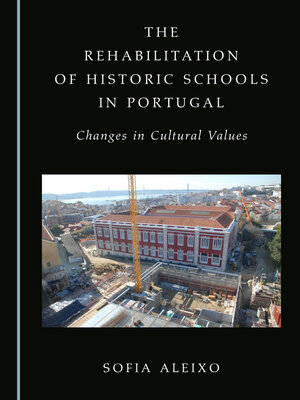The Rehabilitation of Historic Schools in Portugal
ebook ∣ Changes in Cultural Values
By Sofia Aleixo

Sign up to save your library
With an OverDrive account, you can save your favorite libraries for at-a-glance information about availability. Find out more about OverDrive accounts.
Find this title in Libby, the library reading app by OverDrive.



Search for a digital library with this title
Title found at these libraries:
| Library Name | Distance |
|---|---|
| Loading... |
This book examines the material and immaterial values that are used and perceived in heritage educational environments that have been adapted to 21st century education needs. Offering an approach to architectural conservation practice focused on the design and implementation processes, it provides a post-occupation evaluation of the effects of such physical actions on historic learning environments and their values. A comprehensive study of architectural conservation and Theory of Change (ToC) is supported by an extensive literature review and personal insights from the author's everyday practice. Using a selection of recently rehabilitated historic secondary schools in Portugal (liceus), the text presents insights into their existing cultural significance, identifying the design strategies applied and assessing the short-term effects of design decisions on the cultural values. It demonstrates that, whilst design strategies were less concerned with social values, material cultural values were generally considered and preserved, contributing to the enhancement of intangible values. The implications of this research highlight the importance of evaluating actual effects in cultural heritage theory, architectural conservation practice and heritage management policy.Following worldwide investment in the rehabilitation of schools, the interest in this topic has grown among architectural heritage academics and practitioners, who seek to better understand and approach these learning environments in order to achieve better outcomes. The book will also be of interest to public policy makers, given its emphasis on the importance of stakeholder engagement in the conservation process and in the sustainability of re-using existing buildings. Furthermore, it will capture the attention of schools' stakeholders, including students, parents, teachers, non-teaching staff, alumni and the local community, for whom the school environment is a collective, shared memory.







